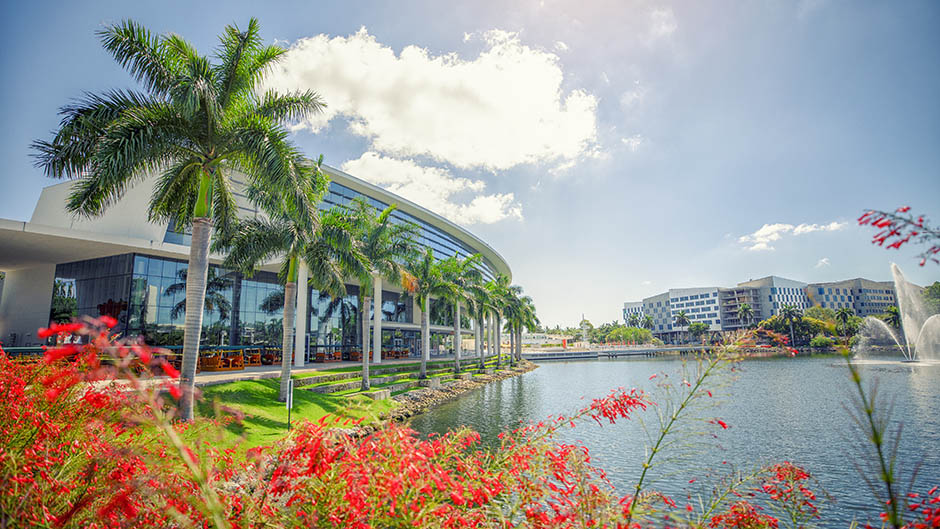Valeria Alterman, an assistant professor of management at the Miami Herbert Business School, has been involved in the Teams Research Incubator program since its inception in 2014 at the University of Florida.
The Teams Research Incubator is a program in which cross-disciplinary researchers present current issues and ideas relating to employees working in teams—team dynamics. It is an immersive experience where members can network and create collaborations, and where novice scholars can learn from seasoned mentors.
“I participated in that first incubator as an undergraduate student working in Wang’s research lab,” said Alterman. “The studies presented were of very high quality and I remember ending the weekend feeling exhilarated and motivated to become a researcher myself.”
Fast forward 10 years, and now those students’ students are the presenters of the latest teams-related research. Its latest installment was at the University of Miami in 2023. The objective of the Research Incubator was to bring teams of researchers—both seniors and novices—to ideate and discuss research ideas.
The last session was coined "Carp Tank," a clever spin on "Shark Tank," where faculty and students presented research ideas by Lake Osceola. This unique approach was well-received and will now be a regular feature at Incubator meetings.
“The last session took place in front of Lake Osceola,” said Alterman. “Faculty and students pitched their research ideas for feedback and potential collaboration to a group of sharks … I mean, carps. And from now on we’ll always incorporate this session to the Incubator – we call it Carp Tank.”
This year, the research incubator focused on a wide range of topics, a few of which caught the attention of Alterman, whose research investigates organizations’ human resource management practices and their effects on employee attitudes and behaviors. First, Artificial Intelligence (AI) and its effects on group dynamics. Second, gossip and productivity in the workplace. Third, meeting modality in new and ongoing teams—shall we meet in person?
Artificial Intelligence and Group Dynamics
Research presented by graduate student Seva Suschevskiy from Northwestern University, shows that individuals who come from homogeneous backgrounds tend to seek leadership from AI team members instead of humans in teams composed of both humans and AI. According to the authors, the reason for this is simple: when people are surrounded by others who share similar characteristics like age, gender, and education, they are less likely to consider the perspectives and strengths of their team members, who might be different. However, since AI lacks human qualities, individuals may find it easier to accept it as a leader and feel more comfortable with it in that role.
Gossip and Productivity at the Workplace
Another notable topic discussed at the research incubator was the impact of gossip on workplace productivity. Research conducted by graduate student Yangyi Yu from the University of Illinois at Urbana-Champaign suggests that gossip at work can either enhance or hamper productivity, depending on how individuals engage with the information. If individuals are overwhelmed by the information obtained through gossip, it may hamper productivity. However, if they capitalize on the information, their productivity might be enhanced.
Shall we meet in person?
Especially since Covid-19, teams are concerned about whether in-person meetings are inherently better than virtual meetings. A group of researchers at Northwestern University including graduate student Amelia Emery argued that meeting modality (either in-person or remote) impacted the strategies teams adopted in a classroom activity. Teams of teams—or multiteam systems—were equally likely to reach the correct answer whether they met in person or remotely. However, these multiteam systems meeting remotely used differential strategies, and were more likely to choose win-win or winner-takes-all strategies, compared to compromising strategies where neither team experienced gains.

